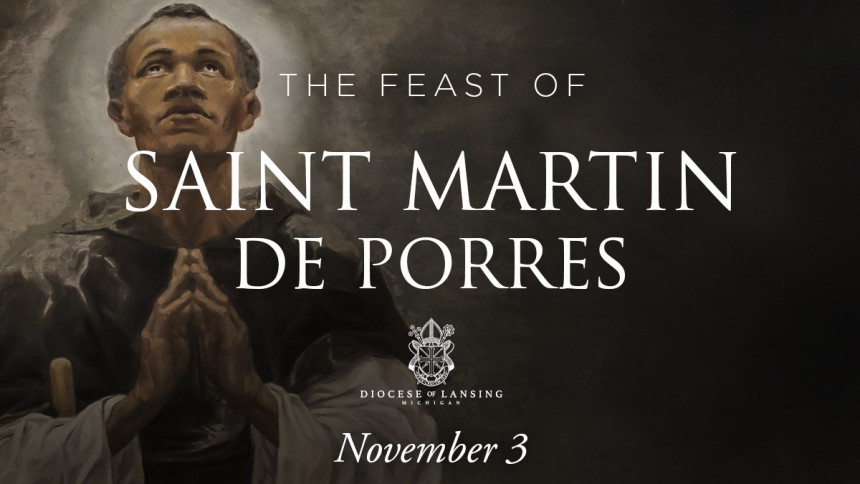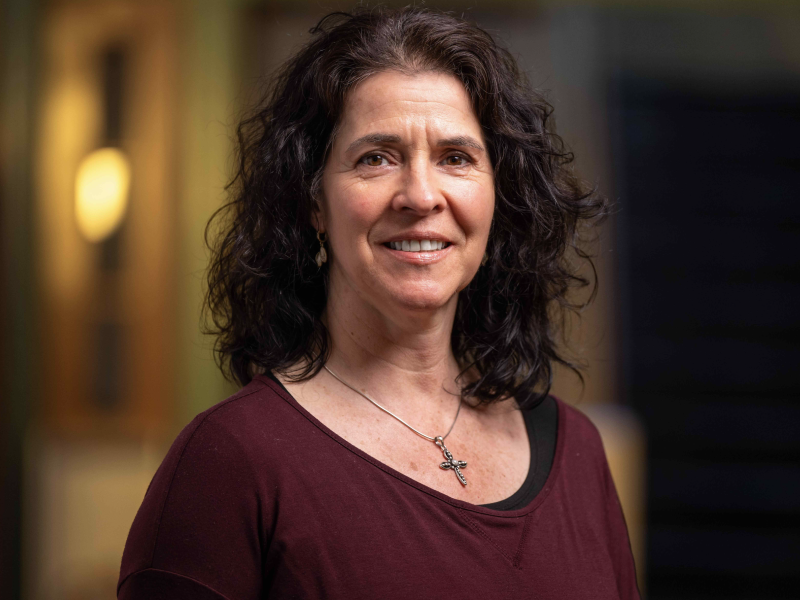
Humble, obedient, in love with God and the Virgin Mary, Saint Martin de Porres (1579 – 1639) tried to prevent the superior of the Dominican Order from selling the convent's valuables because of economic problems, saying "I am only a poor mulatto, sell me!" writes Susana Chapa, pictured below, Director of Hispanic Ministry for the Diocese of Lansing, November 3.
Martin had been accepted as a volunteer to carry out the humblest tasks in the convent because as a mulatto, son of a Spanish father and a black mother freed from slavery, he had no chance of being accepted into the order because of the color of his skin. In the eyes of the Spaniards, the work assigned to him was menial and not suitable even for the lay brothers of the monastery.
In the convent, Martin spent countless hours in front of the Blessed Sacrament and developed a great devotion to the Virgin Mary, as well as a great love for the poor and needy. He eventually rose to the position of ecclesiastical officer in charge of distributing money to the poor.
Obedience is one of the virtues par excellence that lead to holiness. Because of his charitable works and healings, and even because of his gift of bilocation and levitation, he was soon envied by the brethren, so that he was forbidden to help anyone except with the permission of his superior. Martin always obeyed to the extent that one day he saw a person fall from a scaffold and before helping, he ran to ask permission from his superior. The many cases of people who miraculously healed when Martin prayed for them and his humility got him accepted for ordination and professed his vows. He always attributed the healings to God, not to himself.
Apparently, God has mysterious plans for the convent porters, for in a manner similar to Blessed Solanus Casey, Martin, at the door of the monastery, began to greet the conquered Inca, the African slave, the poor homeless Spaniards. His holiness was evident through his social work among widows, orphans and prostitutes; the founding of hospitals and orphanages; and even his love for animals.
In his homily, when canonizing him, Pope St. John XXIII stated "He was tireless in his efforts to reform the criminal, and he would sit up with the sick to bring them comfort. For the poor he would provide food, clothing and medicine. He did all he could to care for poor farmhands, blacks, and mulattoes who were looked down upon as slaves, the dregs of society in their time. Common people responded by calling him, "Martin the charitable."

